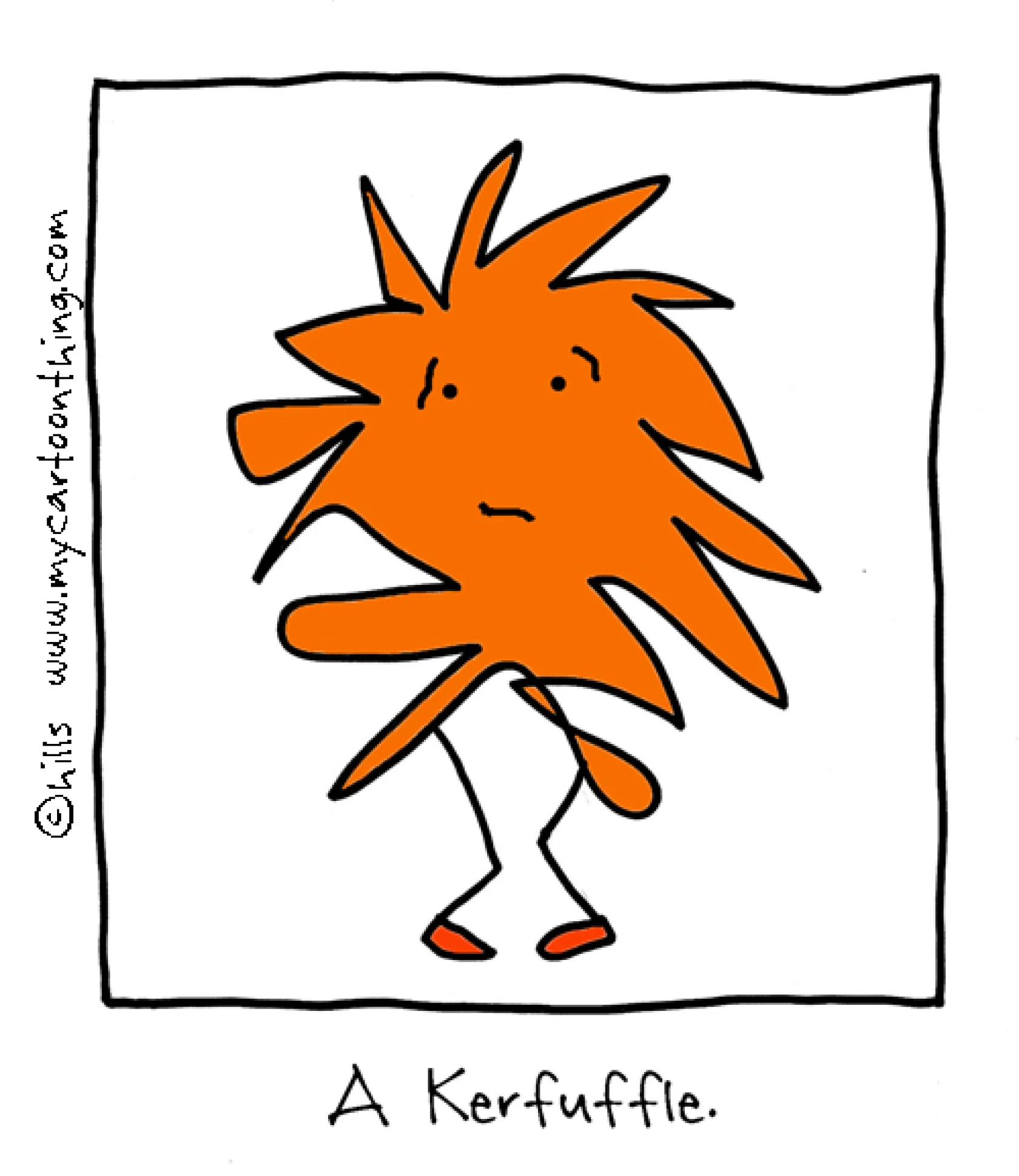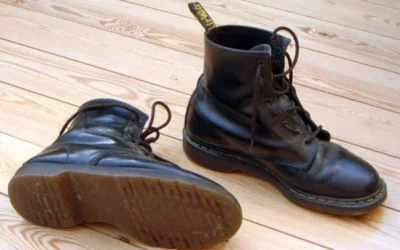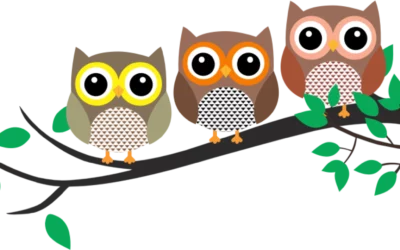When my 9-year old nephew asked his parents what a kerfuffle was, they said, “It’s like a brouhaha.” My nephew followed up, “What’s a brouhaha?” And his parents, in a move no lexicographer would endorse, responded, “It’s a kerfuffle.”
Had my nephew looked up kerfuffle in Merriam-Webster online, he would have found “disturbance, fuss,” and a note that the word is chiefly British. The Oxford English Dictionary cross-references curfuffle (the original Scottish form and a common spelling through the first half of the 20th century) and defines that as “disorder, flurry, agitation.”
The word kerfuffle is just plain fun to say and spell, and I use it as often as possible to describe a fuss that I think is bigger than it probably needs to be. I’m writing about kerfuffle today, though, not just to celebrate a good English word but to put forward the hypothesis that its meaning is subtly shifting under our very noses.
I had not realized until recently that kerfuffle had been primarily a British term (the OED cites it back as far as 1813), popularized in the United States within the past 30 years or so. The Corpus of Contemporary American English (COCA) shows kerfuffle coming into its own in spoken and written contexts within the past 10 years. All the numbers are low, but the increase is striking: one occurrence from 1990-99; six occurrences from 2000-04; 13 from 2005-09; and 22 from 2010-12 (more than a threefold increase in the past three years). The Google Books Ngram Viewer starts the sharp upward trend in usage in the 1980s in both American and British English, with the word continuing to skyrocket in use in American English at the end of the 20th century while tapering off in British English.
I was thinking about the word kerfuffle this week because it came up on “A Way With Words” on National Public Radio. Veronica, a British woman from Liverpool now living in the States, called in to talk about her surprise at recent sightings of kerfuffle in American media. She then talked about how her mother would come home sometimes to the disarray of children’s activities and ask, “What’s all the kerfuffle?” I found myself thinking, I don’t think I hear kerfuffle used much this way, to refer to exactly this kind of confusion or disturbance—a more physical, concrete state of affairs. A kerfuffle, it seemed to me as I drove along in the beautiful Michigan wilderness listening to the radio with no linguistic resources to consult other than my own intuition, is often a verbal uproar and it often involves arguing.
Having now checked some data on actual usage, here is my hypothesis: the word kerfuffle is coming to refer not only to a fuss or uproar but often specifically to a fuss or uproar stemming from a disagreement or argument. It is a subtle shift, but semantic shifts often are—and it is the fun of linguistic detective work to see if we can spot these shifts as they occur.
Many of the occurrences of kerfuffle in COCA seem to refer to general fusses, such as “a huge media-ethics kerfuffle” or “this immigration kerfuffle” (in the Republican Party). But there is also some arguably more argumentative kerfuffling (I am aware that kerfuffle as a verb has not yet caught on in the States—I’m hoping for credit as an innovator on this one).
Some examples are ambiguous, exactly the context in which semantic shifts flourish. For instance, in 2003 The Atlantic Monthly includes this sentence in a discussion of whether children with nits should be allowed to attend school (studies show that not all children with nits have lice): “The nits versus no-nits debate has turned into a major kerfuffle among parents, teachers, school nurses, and—for all I know—cafeteria workers forced to wear those ugly hairnets.” Has the debate caused the disturbance that is a kerfuffle or is the debate actually part of the kerfuffle?
Other instances are less ambiguous, where kerfuffle seems to refer specially to an altercation. Consider this 2009 example from “Tell Me More” on NPR. Michel Martin, the host, says at one point, “There’s this kind of kerfuffle between David Letterman and Sarah Palin.” Jimi Izrael, a regular contributor to the show, responds, “Yeah. It’s kind of problematic. You know David Letterman and Governor Sarah Palin, they kind of going at it in a war of words over jokes dude [sic] made about Bristol.” That is an argument kerfuffle.
A search online turns up a definition of kerfuffle in Cambridge Dictionaries Online that reads “noise, excitement, and argument.” The Urban Dictionary, which can offer its own kind of insight into how folks are using words, now has several definitions that cite “disagreement,” “accusations and defensiveness,” and “altercation.” But a definition that captures this argumentative connotation has not infiltrated all standard dictionaries yet.
Were I asked to write that definition right now, I would try to capture that a kerfuffle is not just any argument or altercation, at least right now. It is a less serious kind of argument, perhaps an overblown one. It may be the fluffy, puffed up sound of kerfuffle that gives it this more frivolous or silly connotation (and Grant Barrett mentioned on “A Way with Words” that some folks say “kerfluffle”). The word kerfuffle thereby allows us to offer our own perspective on the merits of a dispute. And as we do, we change the language an inch at a time, word by word, meaning by meaning. Sometimes semantic shifts are dramatic (e.g., peruse shifting from “read carefully” to “skim”) but often they are so subtle as to barely seem like changes at all.
This blog was originally posted on The Chronicle




